
The “Near you”
EEAS bulletin news
by U4U, USHU, R&D, Conf-SFE, FFPE
 |
The “Near you” by U4U, USHU, R&D, Conf-SFE, FFPE |
Editorial: The issues for the next elections to the EEAS Staff CommitteeThe forthcoming elections to the Staff Committee starting in February are extremely important. These are the second professional elections to the EEAS. In 2011, the first elections were held when the EEAS was created, just as the staff were taking up their posts after the changes and new allocations. The inadequate resources provided to the staff representatives (service exemptions, mission budgets although 2/3 of the staff are in delegations) made things difficult. Instead of encouraging the united inter-union action sought by Near You, these real constraints were aggravated by petty quarrelling and personal attacks, which has a regrettable impact on the smooth running of the Committee, to the detriment of the defence of legitimate staff interests. The unions that make up Near You had assessed the difficulties. On the basis of joint practices and analyses, particularly during the negotiations concerning the creation of the EEAS, we had decided to join forces to avoid fragmenting staff representation, which would make us weaker. This initial decision was renewed for the forthcoming elections, a sign of our political maturity. Our group has been further strengthened by the addition to NEAR you of the FFPE, one of the “traditional” unions of the European civil service. This consolidation was followed by US and Plus, who are also now included on the list for the next elections. These two unions have been working together for the last three years. They have provided consistent – if not particularly constructive – opposition, but that is the democratic game. The electors’ choice between the two main forces involved will therefore be made easier. On the other hand, whatever the result of the elections, between us we will have to improve the performance of the staff representation by focusing on the following principles:
These are the principles to prioritise during, and especially after, the campaign. They will have to be complemented by the development of a staff policy for career monitoring and improving equality and job security. We have already said this to the VP/HR (see below). We will review the content of our agenda – everything we are demanding from the administration – during this campaign.
|
The EEAS unions meet the VP/HRThe VP/HR met EEAS staff representatives on 6 January. This was a positive change compared to the practice of the previous VP/HR. It should be remembered that the first thing Mrs Mogherini did after taking up her post in November 2014 was to meet the staff. The VP/HR intends to pursue the comprehensive social dialogue she implemented in Italy when she was the Minister for Foreign Affairs. This positive sign must, of course, be translated into concrete results, but it is nevertheless very welcome. Bertrand Soret – the Near You representative and top of our list for the next elections – specifically referred to the letter we sent to Mrs Mogherini to emphasise the importance of strengthening the European civil service by more effectively integrating the actions of the EEAS with those of other institutions, first and foremost the Commission. He pointed out the need to improve the performance of the EEAS, which is suffering from the overload of new hierarchies, poor coordination and a lack of reflection on the professions involved in a genuine diplomatic service. He shared with her our suggestions for better human resource management, as there is much that can be done to improve the situation. The need to respond to the following urgent problems was emphasised during this initial contact meeting:
The VP/HR has shown herself to be very attentive. She has promised to return with responses and suggestions for the future social dialogue social and has instructed her Office Cabinet to remain alert and ready to listen. Mrs Mogherini knows that her approach of openness and availability is appreciated by both staff and unions. She also knows that it is a priority to define a management policy and negotiate it with the unions, as well as the implementation procedure.
|
Coordinating external action(text for the debate) Any merger usually leads to restructuring. The European External Action Service cannot escape this rule of good governance, which is imposed on both the public and private sectors. By refusing this restructuring, the various institutional actors, led by the Member States, have produced, more or less unintentionally, the opposite effect to that originally sought by the European Convention of 2002, namely to provide the European Union with a voice on the international stage, a common policy with regard to external relations and security and a common diplomatic service able to gradually assume the external representation of joint interests. Against a background of ideological quarrelling between supporters of the community method and those faithful to the intergovernmental system, this original weakness can be largely explained by the resistance of the national diplomatic services (93,912 people in 2011, including 55,441 diplomats, or approximately double the numbers for the USA) in the face of the risks that the emergence of a truly European diplomatic service places on one of the last great sovereign domains. This lack of restructuring has given rise to a hybrid and particularly complex body in which Community jurisdictions, national interests, staff operating under different statutes and overlapping lines of authority all get tangled up together. Put simply, anything but a consistent and efficient service. While some Member States have been slightly more supportive of its introduction, as it is likely to provide them with better international representation (in particular the medium-size States such as Belgium, Sweden, Portugal, Finland and Poland, along with other smaller States whose diplomatic services are less extensive and/or have had to downsize), others, starting with the largest, have effectively sought to install pawns in the EEAS to promote their own national interests and, in some cases, to prevent the emergence of a genuinely common policy. The temptation to become independent Any institutional body naturally seeks to become autonomous. In the case of the EEAS, this natural tendency allied with an openness to the national diplomatic services has quite logically led the service to move more into the orbit of the Council and the Member States by gradually helping to further weaken the European Commission in the field of external relations. This evolution has made inter-institutional cooperation more difficult, despite the fact that it remains essential, as a large part of the competences and budget for the implementation of external action still comes from the Commission. This quest for autonomy vis-à-vis the Commission therefore leads to an increased dependence on the national governments, slowness and a loss of efficiency due to the difficulty of reaching a consensus among the twenty-eight on the nature and intensity of the actions to be taken, with each capital retaining its own geopolitical priorities, and, finally, a lack of political legitimacy. Finding a way out of the confusion The Treaty of Lisbon generally helped complicate the institutional system, although the stated objective was to make it simpler. In the field of external relations, we therefore find ourselves with a plethora of protagonists, including the High Representative for Foreign Affairs and Security Policy and the EEAS, as well as the President of the European Council, various levels of the European Commission (President, Commissioners), the Member States and even the European Parliament (due to its budgetary responsibilities, the control it has over the conclusion of international agreements, its influence through resolutions and even through electoral observation missions). This institutional system, as it is presently designed, produces a level of complexity that must be remedied as soon as possible. Due to their special position as President of the Foreign Affairs Council (and its Defence Agency), head of the EEAS and Vice President of the European Commission, the High Representative is the person on whose shoulders the responsibility rests for being the conductor of the orchestra. The first person to fill this position did not manage (or did not try?) to get the violins playing in tune, as she followed the trend described above by casting the EEAS in the role of secretariat to the national chancelleries. It is now up to Federica Mogherini to wear her different hats as well as undertake the inevitable restructuring of the EEAS, strengthen institutional cooperation and boost the visibility and legitimacy of common foreign and security policy. This is also the mandate given by President Juncker. The VP/HR has arrived at the Berlaymont, headquarters of the Commission, and has expressed a clear desire to coordinate, with her peers, the Community policies, and there are plenty of them, almost all with an international dimension. We shall see what effect this has on the system, above and beyond the symbolic. The confusion cannot, however, be completely removed without reviewing the treaties, and it is difficult to see how they can be allowed to lapse in the current political climate marked by the rise of nationalism and populism of all stripes. Such a review is, nevertheless, essential if we are to restore the integrity of the system by re-establishing a clear organic link between the EEAS and the European Commission so that the service can benefit from the same democratic legitimacy as the Commission via the political and budgetary control of the European Parliament, the only institution elected by direct universal suffrage.
|
Mediator and bullying, initial reportAlthough our mediator, Mrs C. Allegra, will soon be leaving us, a review of the first few years of operation of this service in the EEAS is extremely informative. It must be noted that the EEAS has not yet acquired the anti-bullying culture, particularly in Delegation. The number of cases is edifying (almost 500), although the reality is certainly even more serious. Indeed, the staff in Delegation are particularly vulnerable, in a relatively closed environment in which it is difficult to talk in complete confidence, or even to know who to approach. Various types of problem are listed by the mediator, but the main problem is bullying, which especially affects staff with the least job security and those who are most vulnerable to blackmail: Contract Agents and Local Agents. The latter find it very hard to express themselves on these issues, sometimes for cultural reasons, particularly in cases of sexual harassment (very few cases are actually reported), but above all for fear of losing their jobs. The mediator does not have much in the way of resources to deal with this situation. She works alone most of the time and does not always have a good image. Visits to the Delegations are not always well received by management staff who, in the absence of appropriate training, see it as interfering with their management of the staff and not as assistance in overcoming difficult situations. The victims themselves are still not sufficiently aware of their rights and the protection they are entitled to. A few points need to be given careful consideration. Training for management staff on harassment issues is non-existent. There are still too few confidential counsellors. A new team of six staff members is being trained, but is that enough to provide the necessary support, particularly in all the Delegations? As a reminder, the EEAS service is also responsible for the Commission staff in delegations. Finally, the link with the Medical Service still needs to be improved. NEAR will ensure that the recommendations are acted on, will be involved in prevention and information campaigns, and will regularly question the Administration about changes in the situation. There are still far too many proven and hidden cases of bullying for the situation to continue to be treated so lightly.
|
Breaking News: Contract Agents will act decisively in 2015
The contract agents’ priorities for 2015 are presented in detail in the Call/Petition which was signed by 5500 individuals, so far. The full text of the petition is available here. The Collectif believes that since the new staff regulations entered into force on 1 January 2014, insufficient steps have been taken to implement the new regulations and develop a comprehensive modern policy for contractual agents in the Commission, the EEAS and the executive agencies. The Collectif requests the following: 1. Immediate Measures in early 2015
2. Contract Agent Career Planning
3. Serious HR Policy applicable to All Contract AgentsThere are 6000 CAs in the Commission, representing 18 % of all Commission staff plus CAs in the EEAS, Offices and executive agencies. Such a large number of staff deserve a long-term win-win policy where the Commission makes the most out of the CAs and the CAs make the most out of their job in the Commission. We warmly invite you to actively support the three objectives above by spreading the news and by being present, in large numbers, at the event organised on 28 January 2015, 12h45 at Rue de la Loi 80 in the large CCP room, where we will ask DG HR to start a serious work on these three requests. 2015 is the Year of Action for contract agentsCOME AND MAKE IT HAPPEN!
|
Public meetings of NEAR YouVous êtes cordialement invités - You are cordially invited :
|
List of candidates on the Near YOU list for the staff committee elections in FebruaryClick on names to see candidates' statement
This common list equitably reflects the composition of the EEAS. These experienced candidates commit themselves for the long run. We are a team that is just like you, that listens to you, understands you and that will firmly represent and support you. We ask for your trust and support because our sole commitment is to the interests of all staff.
|
|
EEAS 2015 elections |
Let's build bridges, not walls |
United to be more
efficient : |
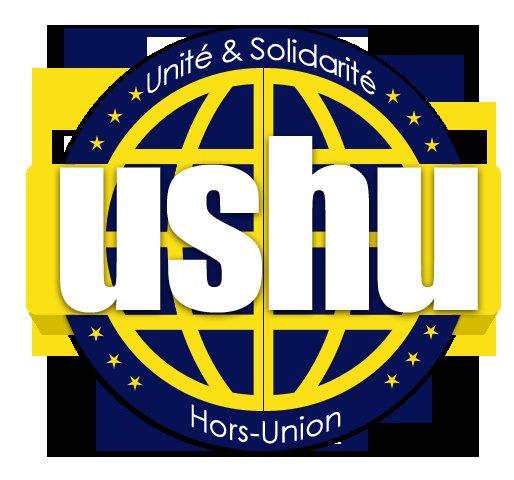 |
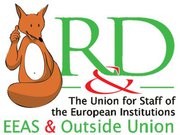 |
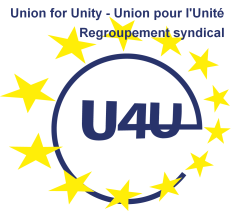 |
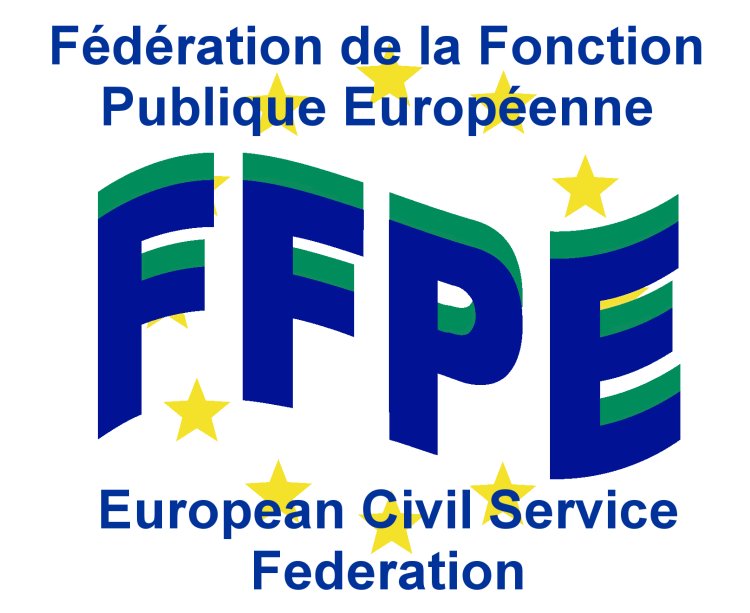 |
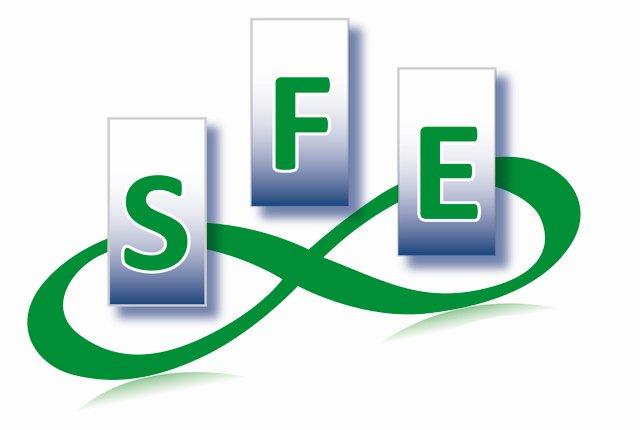 |
15/01/2015 - n°13
Editor : G. Vlandas -
Editor-in-chief: B. Soret
Secretary: Dominique Cabannais, Layout and Web master: Jean-Paul Soyer,
Editorial committee : Victoria Davydova, Helen Conefrey, Siggi Krahl, Sumeet Thakkar,
Ute Bolduan, Thelen Brunhilde, Ferdinand Kopp, Sergio Marinellli, Maria
Manon de Hernandez, Christoph Sorg,
Holger Osterrieder,
Cristiano Sebastiani, Magdalena De Burlet, Hervé Bouge, Dirk Buda, John Lux